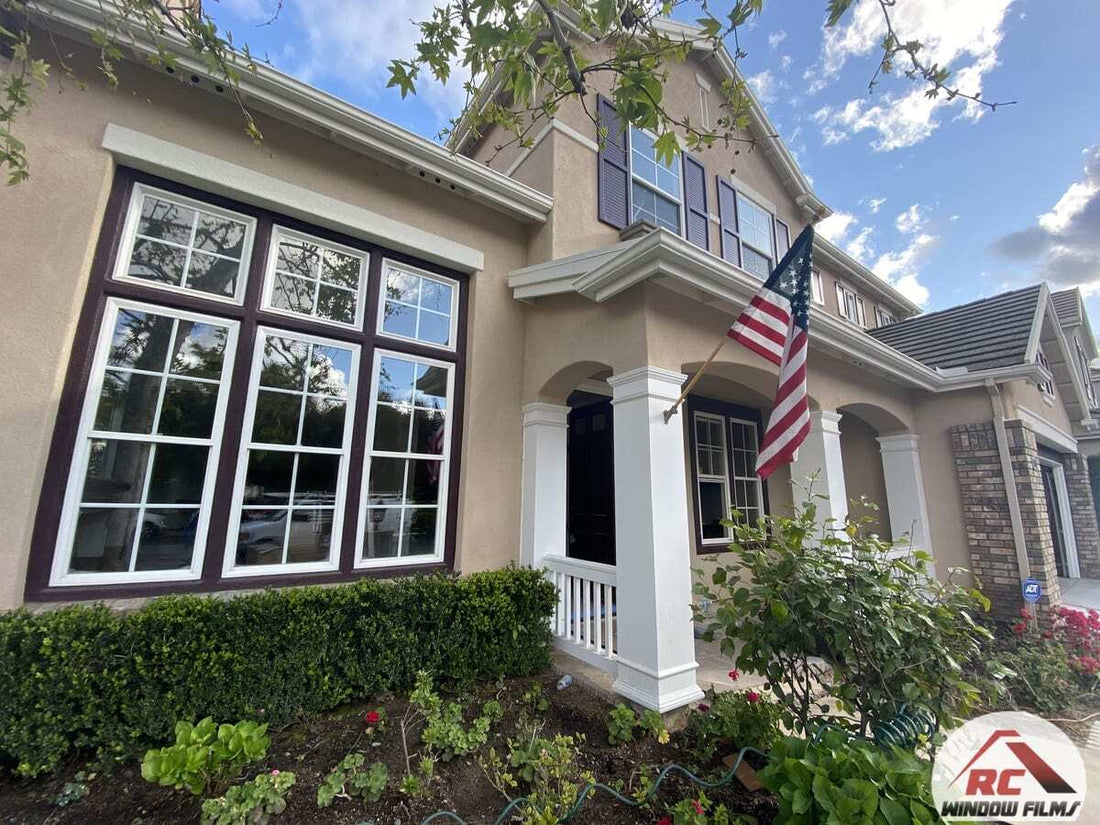There are many types of tint on the market. Window films can be applied to cars, buildings, houses, and boats. Polyester, dye, and metalized window tints are the most common type of films used today.
However, an increasingly popular option is the use of Ceramic tint. You might ask, “What is a ceramic tint? “
Ceramic films or tints are made of titanium oxide. Titanium dioxide is an active ingredient in sunscreen. Titanium dioxide acts as an ultraviolet filter in the sunscreen – helps protect human skin, prevents the absorption of ultraviolet rays from the sun and reduces the chances of sunburns which can increase the chances of skin cancers.
Ultrafine-grade, or Nanoscale Titanium Dioxide
Ultrathin titanium dioxide is most often used in the following applications:
Sunscreen: Nano-titanium dioxide becomes transparent and acts as an efficient ultraviolet light absorber. Because of the small size of the particles, nano-titanium dioxide does not reflect visible light but absorbs ultraviolet rays to achieve a transparent barrier that protects the skin from the sun. According to the Skin Cancer Foundation, sunscreen and window films containing titanium dioxide can help prevent skin cancer.
The same ultrafine ceramic particles are embedded and mixed with PET in its liquid form and pressed with laminators to form Ceramic window tinting film. These films provide superior heat rejection, UV protection, and maintain transparently maintaining uncompromised views.
Ceramic window tint
Ceramic window film is a film that blocks out an incredible amount of sun rays. Its prime use has long been for vehicle tints because of its ability to be very light in color. Home ceramic window tinting is a bit different and requires proper glass inspection to select the best tone and the application surface.
What is a ceramic tint?
Ceramic tint is a high-performance window PET. These types of films are known for their high heat rejection, optical clarity, and beautiful color. Ceramic window film stops both UV and IR, and it’s because of its construction it’s able to expel harmful infrared rays and block damaging ultraviolet light.
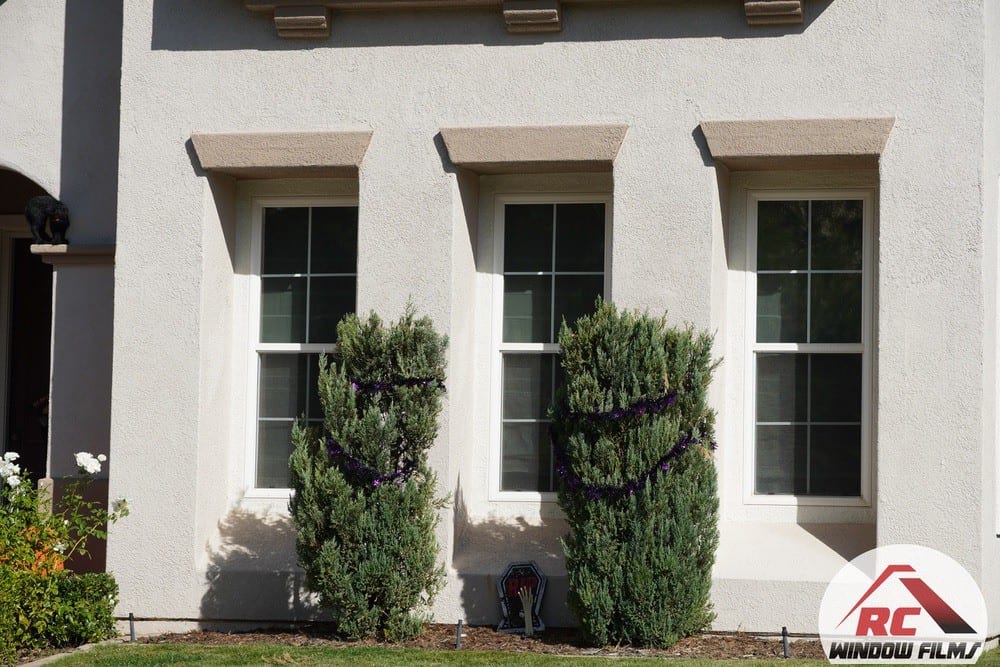
Reflective tint VS Ceramic tint
Ceramic window films are ideal for homeowners looking to keep the natural views. Ceramic window film is known for maintaining tone and color without increasing reflectivity, including distorting visibility.
First, let’s discuss the benefit of window tinting your home; home window tinting, otherwise known as residential window tinting, is a low-cost Home-improvement option when compared to glass replacement. Window tinting films are designed to block UV, reduce heat, cut glare, improve privacy, add security & even add a decorative touch.
Knowing the added benefits of window films, we can now move on to the differences between reflective window films and ceramic window films.
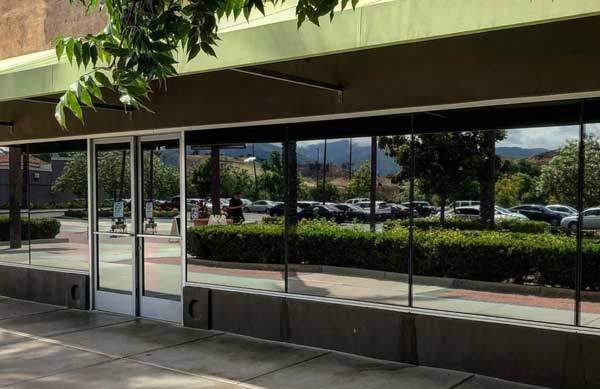
Ceramic Window Film
Ceramic window films are ideal for homeowners looking to keep the natural views. Ceramic window film is known for maintaining tone and color without increasing reflectivity, including distorting visibility.
Advantages
- Maintain Views without increasing reflectivity
- Clear film options with high heat rejection
Disadvantages
- Costly
- Ceramic films can absorb excessive heat raising the risk of thermal stress for some window constructions for buildings.
Reflective Window film / Mirrored tint
Reflective Window tint tends to be the least expensive window film option because of its simple construction, and the raw material is inexpensive compared to the higher performance films like ceramics.
Reflective Window Films are also known as mirrored films because of their mirrored finish and high level of reflectivity. However, if you’re able to overlook the mirrored look, these types of films are very efficient in reducing heat as they reflect a tremendous amount of energy while also being improving privacy. Silver window films are also safe for glass as their absorption rates are meager.
Advantages
- Improves privacy
- One of the cost-effective films for heat reduction
- 99.99 UV reduction
- Comes in a wide selection of darkness levels
- low absorption – making these films safe for a wide variety of glass including dual pane windows.
Disadvantages
- Mirrored look in many situations
- Only darker options reduce significant heat
- limited warranties ( most warranties don’t cover color loss)
- Metalized
Why is Ceramic Film better for your home or office?
Durability
Because other types of films tend to fade over time, they look less attractive with long-term wear. These issues is resolved by the ceramic window film.
IR Blocking
Infrared is a wavelength, which is part of the light spectrum produced by the sun/other light forms. This type of electromagnetic radiation is not visible to the naked eye, but it is known to be a ray that causes heat. Ceramic window film blocks up to 90% of IR from penetrating the windows. This leads to a reduction in solar heat, making the interior feel cool.
UV Blocking
Ceramic tint prevents approximately 99.99% of UV rays from penetrating the window. Ultraviolet rays are harmful to the skin and can contribute to the development of wrinkles, sun damage, and skin cancer. This is one of the most important health benefits of ceramic films.
No metal
Many metal films interfere with the functions of electronic devices such as GPS systems, mobile phones, and radio by blocking or interfering with radio and electronic waves. Due to the fact that the ceramic film is completely free of metal, the maximum power of electronic devices is allowed to operate.
Anti-glare
Thanks to the technology of manufacturing ceramic films, the amount of reflection and glare caused by this film is significantly reduced, and the science behind it is the ability of ceramic particles to absorb light, prevent penetration and reduce glare.
Ceramic Tint – Home window tinting Examples:

Ceramic Tint on from the outside 
Ceramic tint look from the inside 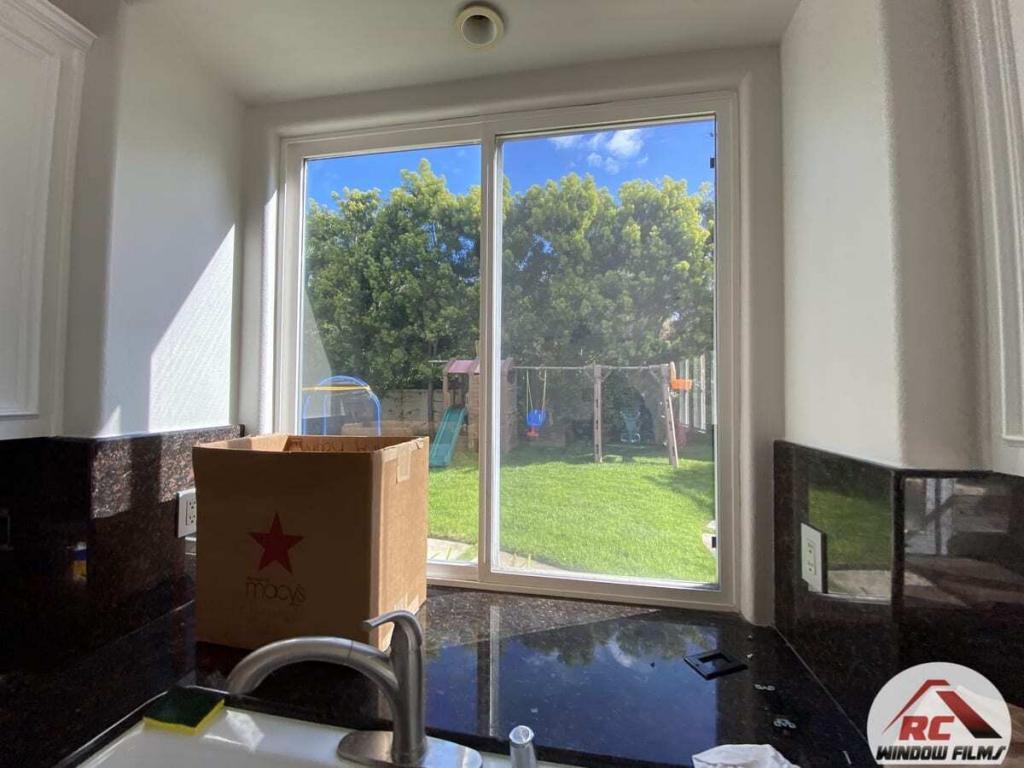
Ceramic Tint on kitchen Window 
Ceramic tint on Bedroom windows 
Ceramic tint on back of house 
ceramic tint on door 
ceramic tint on a home near the beach 
Ceramic tint look from the backyard 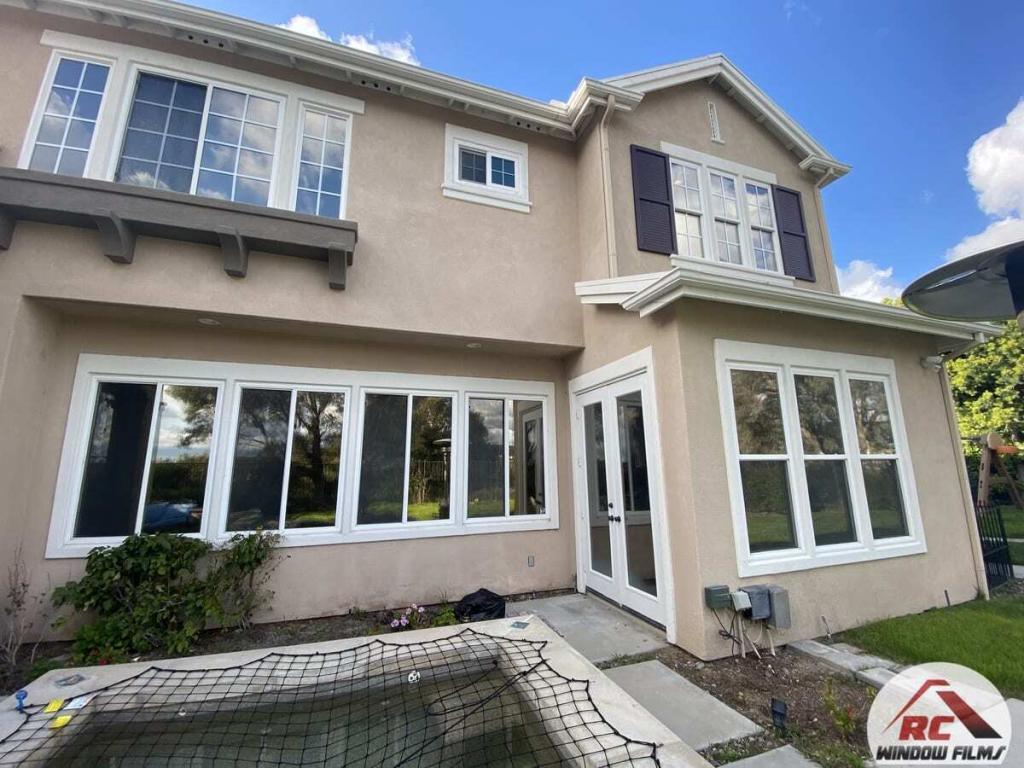
Ceramic tint installed 
Ceramic tint look on doors

